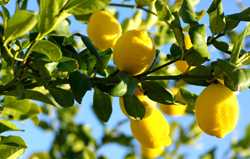Improving the Mediterranean's citrus trees
Rootstock is the healthy root or part of a root that is already established and is used for grafting and cutting from another plant. Traditionally, sour orange rootstocks have been used to provide tolerance to salinity and iron deficiency associated with alkaline soils. However, sour orange rootstocks are not capable of halting the spread of Citrus tristeza virus (CTZ) throughout the region. Therefore, new citrus rootstocks were urgently required. Project partners enhanced the rootstock through the breeding strategies of sexual recombination and somatic hybridisation. The EU-funded 'Citrus breeding for efficient water and nutrient use' (Cibewu) project improved the effectiveness of citrus rootstock to fight disease and tolerate difficult conditions in the soil environment. The initial development of genomic and molecular tools was conducted in EU laboratories before being transferred to the laboratories of project partners based in Turkey and Mediterranean Partner Countries (MPCs). The transfer played an important part in disseminating knowledge throughout the region. Standard protocols and methodologies were developed for use by the Cibewu consortium together with new biological resources and tools. Software for the network management of genetic resources and new rootstock trials were also created for use by citrus growers and nurseries that were part of the consortium. Greater tolerance by rootstock to salt, and iron deficiency in alkaline soils will help to produce larger harvests of citrus fruits in MPCs, thereby, increasing jobs, exports and citizens' quality of life.







